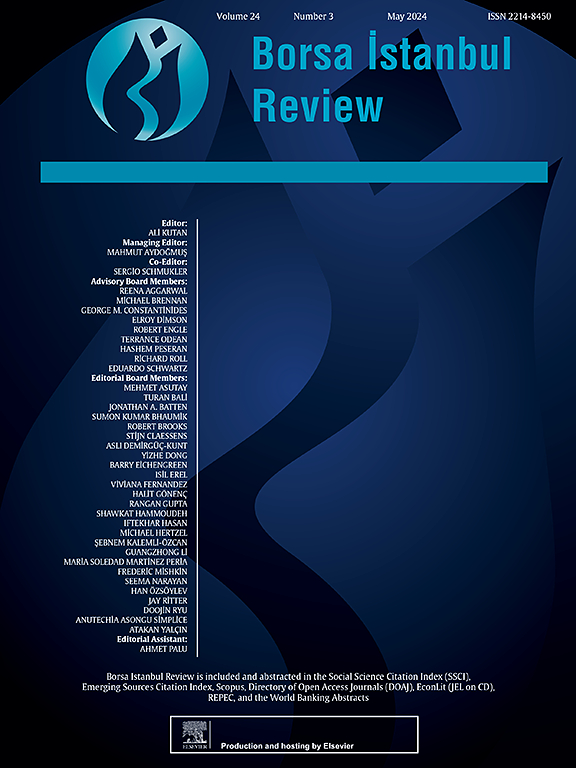Borsa Istanbul Review
Publicado:
Clasificación JEL:
C22, C58, G01, G15

Lo más reciente
Bernardo Romero-Torres, Gerson Javier Pérez-Valbuena, Andrés Felipe García-Suaza, Jaime Alfredo Bonet-Moron
Olga Lucia Acosta Navarro, Andrés Felipe Chitán-Caes, Ana María Iregui-Bohórquez, Ligia Alba Melo-Becerra, María Teresa Ramírez-Giraldo, Jorge Leonardo Rodríguez Arenas
Alejandro Ome, Laura Giles Álvarez, Gerson Javier Pérez-Valbuena, Cristhian Larrahondo
Assessing the dynamics of risk premium measures and their relationship with macroeconomic fundamentals is essential for macroeconomic policymakers and market practitioners. This study analyzes the main determinants of sovereign credit default swaps (SCDS) in Latin America at different tenures, focusing on their volatility. Using a component generalized autoregressive conditional heteroskedasticity model, it decomposes volatility into permanent and transitory components. It finds that the permanent component of SCDS volatility in all tenures was higher and more persistent during the Global Financial Crisis than during the recent coronavirus shock.

